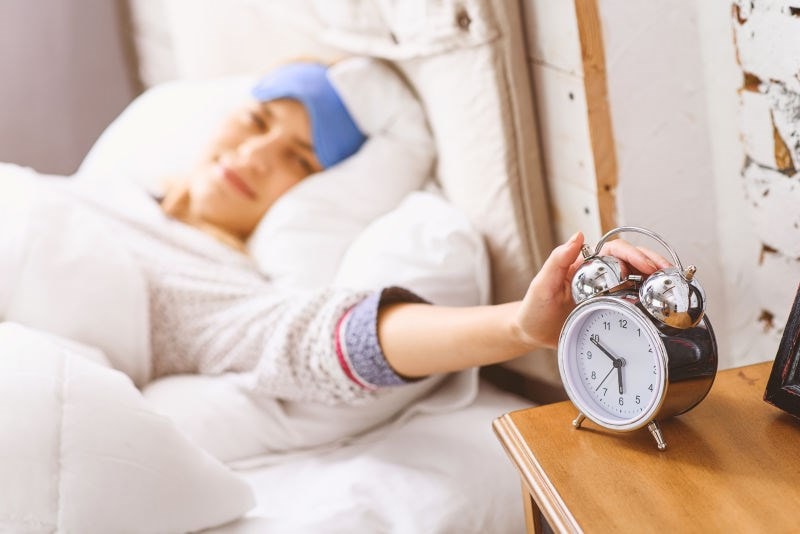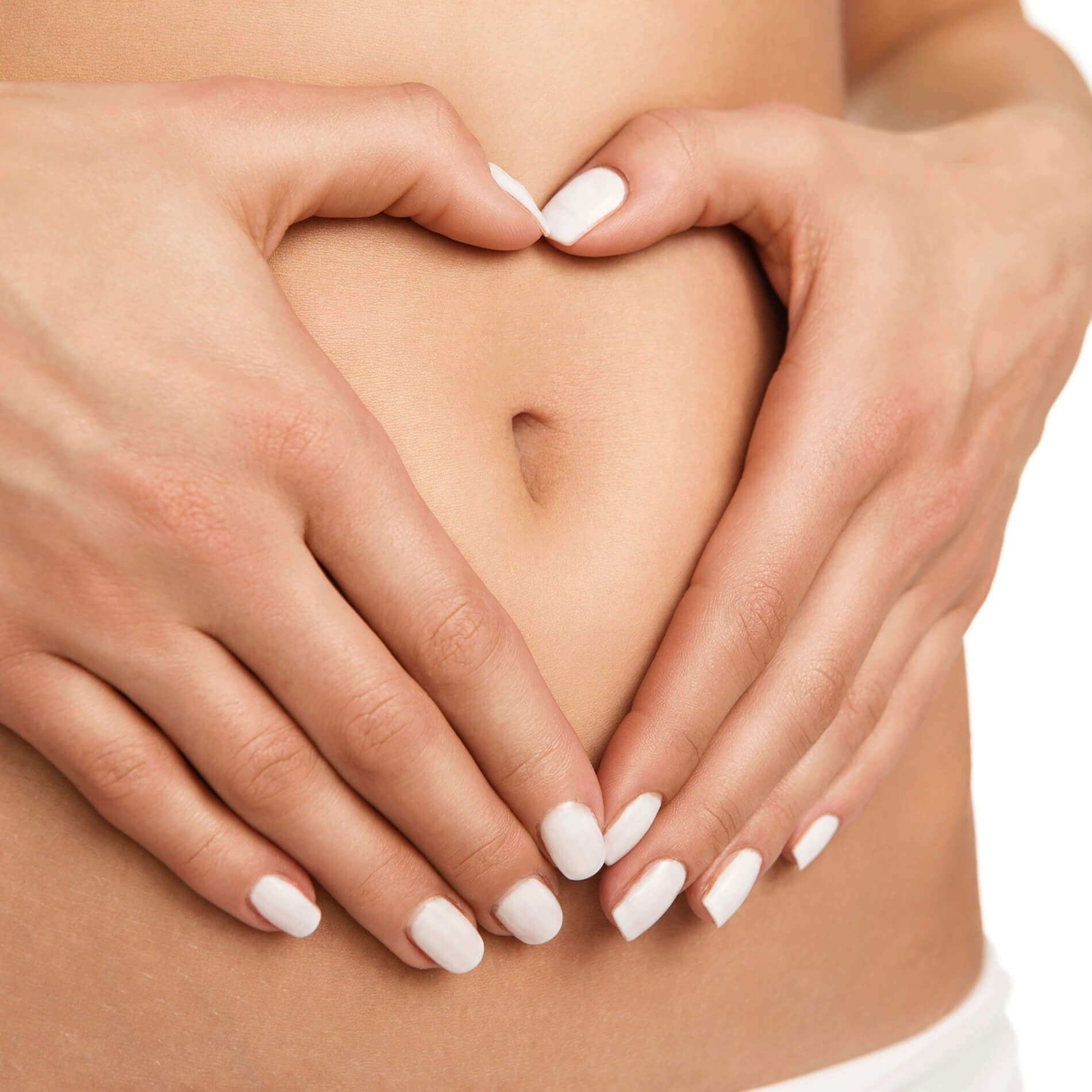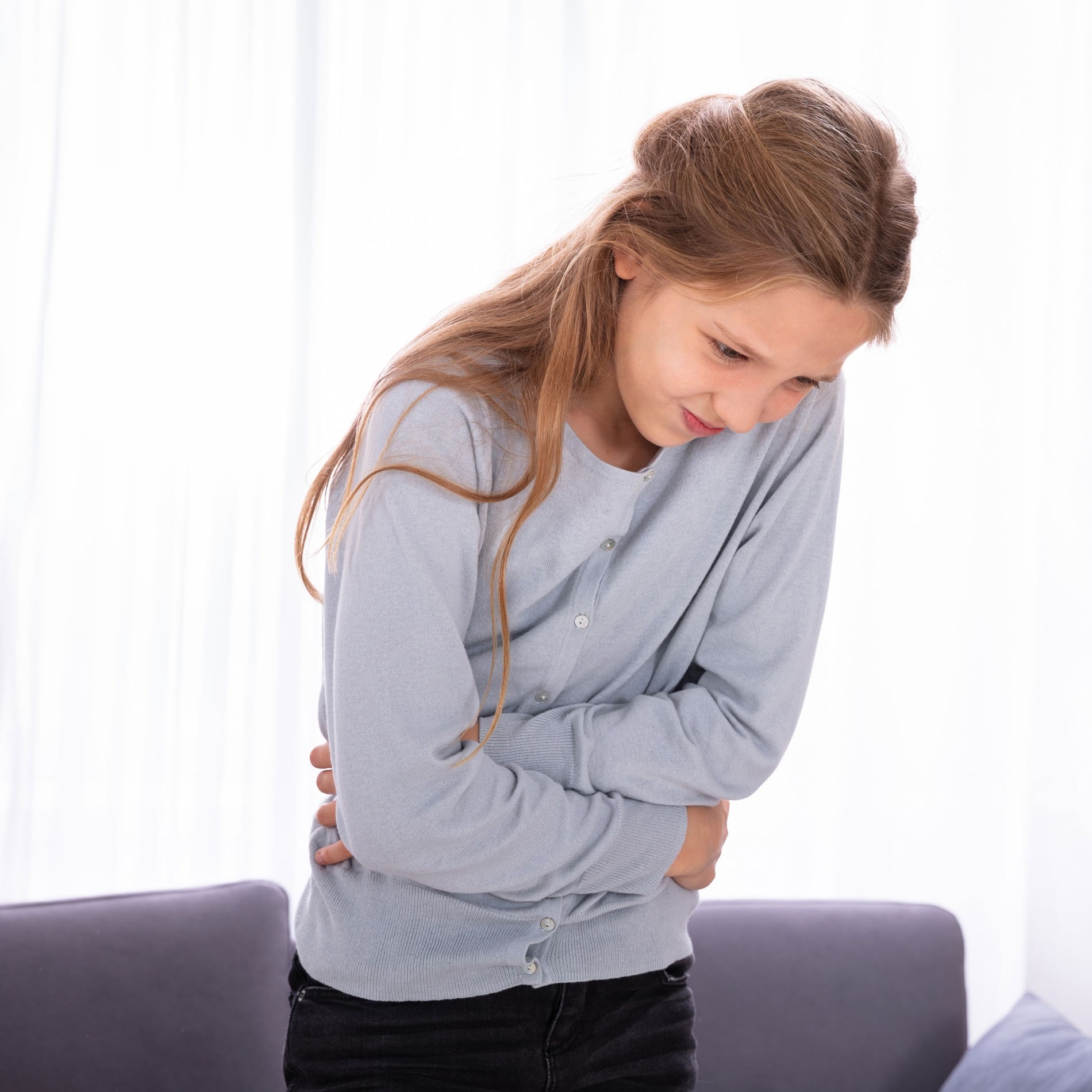Gut health, probiotics and sleep: all you need to know
Sleep – an essential factor in physical and mental health. Yet, unfortunately, many people don’t get enough of the rest they need. Up to 30% of all adults are thought to suffer with insomnia to some extent, with women more likely to be affected at some point than men. Along with other factors, there is now known to be a connection between a healthy gut and sleep. This article deep dives into everything you need to know about probiotics for sleep:
- Can gut health affect sleep?
- Probiotics and insomnia
- Which are the best probiotics for sleep?
- Prebiotics for sleep
- Key takeaways: probiotics and sleep
According to How to Sleep, statistics from a recent survey revealed that up to 22% of adults in the UK have trouble falling asleep every night. 15% of people surveyed admitted to struggling to get to sleep at least once a week. The recommended amount of sleep for adults is between seven and nine hours every night, yet around 40% of the population do not hit this target. Why? And what can be done about it?

Can gut health affect sleep?
Back in 2017 there was a fascinating show on the BBC about sleep. The programme, titled “The Truth about Sleep”, was presented by Dr Michael Mosley, a doctor famous for his research and books on intermittent fasting. The programme looked into factors such as diet and lifestyle, as well as gut bacteria and prebiotic fibres - discussing the way they can affect and possibly increase our sleep quality.
Sleep is a topic we are very keen on as it is such an important aspect of our lives, yet so many of us don’t always get enough of it. One of the things highlighted in the show was the importance of your gut microbiome and their influence on sleep!
We are aware that stress can have an effect on our microbiome and lead to dysbiosis (an imbalance of good & bad bacteria) in the gut. However, what we didn't know until recently was that this could in turn affect our sleep cycle. We now know that chronic sleep disruption from shift work or jetlag is associated with dysbiosis1.
Another interesting point taken from this programme is that when we get less sleep, specific gut bacteria become more active. The strains in question are known to promote increased absorption of calories and energy uptake from foods2. Whilst this may be helpful in dealing with the energy deficit caused by poor sleep, it can also cause weight gain. Interestingly, the concentration of these strains of bacteria is higher in obese individuals.
Sleep deprivation also causes the body to increase the secretion of hormones like ghrelin (the “hunger hormone”). With this hormone promoting the urge to eat more and our gut bacteria already stimulating increased calorie intake from our food, the link between gut flora, sleep deprivation and obesity3 looks even more likely.
Probiotics and insomnia
Insomnia is a sleep disturbance described as difficulty falling asleep or staying asleep, which results in a reduction in the quality or quantity of satisfactory sleep. It is thought to affect around 10% of the population on a regular basis, with up to 1 in 3 people experiencing insomnia occasionally. That’s a lot of missed sleep.
Lack of sleep doesn’t just affect how alert we feel the next morning. Research links insufficient sleep to changes in gut bacteria that could affect our general metabolism and negatively impact on different body systems, such as the immune system.
Recently, there has been encouraging research into probiotics and insomnia4. One particular study, conducted at Uppsala University in Sweden, followed 9 healthy volunteers, all of whom had reported having good, consistent levels of sleep and regularly timed meals in the week leading up to the study. These were important controls as they eliminated variables that could have otherwise skewed the study results.
The participants were asked to stay four nights at a sleep facility, and have their sleep monitored. During the first two nights at the clinic, they were allowed to sleep for a restful eight and a half hours, however on nights three and four their sleep was restricted to only four and a half hours.
The data collected from the study showed that not getting sufficient sleep for even just two nights, as someone with insomnia might experience, significantly affected the participants gut flora5. The types of bacteria present in the gut did not necessarily change, however the levels of each type of bacteria changed dramatically, with certain microbes reducing in numbers by almost 50%.
The participants were also found to be 20% less receptive to insulin after two nights of sleep deprivation, and interestingly their gut flora then mirrored the gut flora of previously observed subjects who were either clinically obese or had metabolic disorders. Lack of sleep has long been linked to obesity, however it has never fully been understood exactly how the two are linked, other than that disturbed sleep seems to reduce our cells sensitivity to insulin. This puts a huge burden on the body as more insulin is needed to regulate blood glucose levels, which may eventually lead to the development of either type two diabetes or obesity.
Another study, carried out by an International team of researchers from the UK and Spain, has found strong evidence, suggesting that the contrary is also true. Not only does our sleep affect our microbiome, but our microbiome also affects our sleep6.
The team has found that the microbes living in our gut produce molecules which activate a protein (called TLR2) in the intestines. This protein is vital to the transportation of serotonin, which is a neurotransmitter that helps to regulate many functions in the body, including: sleep, mood, and appetite. It seems that having the wrong types of microbes in the gut, can lead to 'disordered' serotonin transportation, and therefore changes in overall intestinal serotonin levels. Low serotonin levels have been linked to many disorders, including mood disorders, sleep disorders and obesity.
We have explained in a previous article about the emerging science of 'psychobiotics' which studies the links between our microbiome and our emotions. In that piece I mentioned that gut microbes can increase levels of GABA, a calming neurotransmitter that can help in anxiety disorders. This new research looking at the impact that our gut flora has on our sleep, adds serotonin to the long list of physiological markers that can be either positively or negatively affected by our microbial 'residents'. You can read more here: psychobiotics.
Which are the best probiotics for sleep?
There are a variety of strategies and supplements that can help improve the quantity and quality of sleep, from meditation to magnesium. More recently, it seems that many people are swapping sleeping pills for probiotic supplements, in a bid to get a better night’s sleep without any side effects.
A review of probiotics for insomnia found no clinical trials that directly evaluated the effect of probiotics for sleep disorders in humans8. However, because of how the gut-brain axis works, we know there has been increasing scientific focus on this area.
Probiotic strains that may be helpful for sleep include Lactobacillus acidophilus Rosell-52 and Bifidobacterium longum Rosell-175. These strains have been clinically researched in many trials and found to help with reducing anxiety and sleep disturbances alongside improving low mood and the ability to deal with stress10,11. In a recent double-blind, placebo-controlled trial, 15 dancers were assigned to receive either a 12-week supplementation of Lactobacillus helveticus Rosell-52 and Bifidobacterium longum Rosell-17 or a placebo. A trend toward improved sleep quality was observed in the probiotic group, while the placebo group showed a decline14.
A study in 2009 investigated the impact of Lactobacillus acidophilus Rosell-52 on sleep in the elderly. 29 healthy subjects aged 60-81 years old were given a Lactobacillus acidophilus Rosell-52 fermented milk drink for 3 weeks, followed by a period of time with no supplementation, before being given a placebo drink. Sleep quality, measured by a wearable sleep tracker alongside a sleep questionnaire, was measured. Researchers found that the probiotic drink, unlike the placebo drink, significantly improved participants quality and quantity of sleep12.
Health practioners can read more about probiotic strains over on our Probiotics Database: Lactobacillus acidophilus Rosell-52
Additionally, a study in 2021 found positive results from probiotic supplementation on sleep. They reported that the best probiotics for sleep may be a mixture of Lactobacillus reuteri NK33 and Bifidobacterium adolescentis NK98. These two strains were found to improve stress, depression, anxiety, and sleep disturbances9.
The 156 participants completed a variety of self-reported questionnaires at baseline and then again at four and eight weeks of treatment. The probiotic supplement group had a more significant reduction in depressive symptoms at four and eight weeks of treatment, and anxiety symptoms at four weeks, compared to the placebo group. Those receiving probiotics also experienced an improvement in sleep quality. Furthermore, supplementing with Lactobacillus reuteri NK33 and Bifidobacterium adolescentis NK98 resulted in increased levels of Bifidobacterium and Lactobacilli and decreased Enterobacteria in the gut microbiota composition. The researchers concluded that probiotics, and these two strains in particular, could be beneficial for mental health and sleep.
The latest research on probiotic strains which can help with sleep and mood include a 2024 study on Bifidobacterium breve M-16V13. Results from this study found that a 6 week dosage of B. breve M-16V improved mood and sleep scores in participants with high anxiety levels.

Prebiotics for sleep
Prebiotic fibres are food sources that feed probiotics, our friendly bacteria. When probiotics feed on and break down prebiotic fibres, they produce metabolic by-products. These by-products include molecules such as short-chain fatty acids, which have a positive effect on brain chemistry. Diets rich in prebiotics are thought to help with improving the amount and growth of beneficial bacteria in the gut - which in turn reduces stress linked to sleep deprivation in many people.
Also, the increased numbers of beneficial bacteria resulting from the nourishment provided by the prebiotics could have a direct effect on the brain and sleep. Beneficial bacteria are known, for instance, to help in the synthesis of neurotransmitters and hormones such as serotonin and melatonin, which are important for our sleep/wake cycles. This demonstrates that both probiotics (friendly bacteria) and prebiotics play an important role in improving our gut health and sleep.
A 2017 study from the University of Colorado - looked into the theory that diets rich in prebiotics may help with improving the amount and growth of beneficial bacteria in the gut - which in turn reduces stress linked to sleep deprivation in many people. The researchers examined the effect that taking prebiotics had on sleep quality – revolutionary as it was this research that prompted Dr Mosley to try it on himself in his TV program.
The study found that rats fed with a diet rich in prebiotics, had an increase in beneficial bacteria in their gut flora after just 4 weeks. What’s more, these rats had better quality of sleep compared to the other control rats. This result suggests that the prebiotics caused an increase in beneficial bacteria in the gut which consequently improved sleep7.
It is not surprising that introducing prebiotics had the same effect on Dr Mosley when he tried it himself. His personal experiment just goes to show that there is a possible link between prebiotics, probiotics, and sleep.
Although the study detailed on the TV show found promising results, and the prebiotic 'experiment' also seemed to help Dr Mosley, it's important to take these results with a pinch of salt. Firstly, because the research was carried out on rats and the effects on humans haven't yet been replicated in a large-scale clinical trial. Whilst the prebiotics worked well for Dr Mosley, we would love to see large-scale human studies done in order to establish a significant link.
Key takeaways: probiotics and sleep
Investigation around the use of probiotics have been growing due to their health benefits in several areas. The use of probiotics for sleep and emotional disorders, such as insomnia, stress, anxiety and depression, is gaining traction. This is very encouraging news for anyone who struggles to consistently get a good night’s sleep. Here are our top key takeaways:
- Consistent sleep deprivation can lead to unwelcome changes in your gut microbiome.
- Greater microbiome diversity tends to be associated with better sleep patterns.
- Changes caused to the microbiome because of poor sleep habits are at least partially responsible for metabolic conditions.
- Choosing a probiotic and prebiotic in combination could provide extra benefits for your quality of sleep.
For further reading you may wish to look at the following:
Gut-brain axis and probiotics
Best probiotics for gut health
What are probiotics?
References
- Thaiss C et al., (2014) Transkingdom Control of Microbiota Diurnal Oscillations Promotes Metabolic Homeostasis, Cell. 159(3), 514-529.
- The truth about sleep. [TV series]. UK: BBC, 2017.
- F. Hu, Obesity Epidemiology, Boston: Oxford University press, 2008.
- Lee L, Letchumanan V, Law JW, et al (2022) IDDF2022-ABS-0241 Exploring the potential role of probiotics in alleviating insomnia, Gut 2022;71:A65.
- Gut microbiota and glucometabolic alterations in response to recurrent partial sleep deprivation in normal-weight young individuals. Christian Benedict, Heike Vogel, Wenke Jonas, Anni Woting, Michael Blaut, Annette Schürmann, and Jonathan Cedernaes,
- E. Latorre et al. 2016. Intestinal Serotonin Transporter Inhibition by Toll-Like Receptor 2 Activation. A Feedback Modulation. PLoS ONE 11 (12): e0169303; doi: 10.1371/journal.pone.0169303
- R. S. Thompson, et al., (2017) "Dietary Prebiotics and Bioactive Milk Fractions Improve NREM Sleep, Enhance REM Sleep Rebound and Attenuate the Stress-Induced Decrease in Diurnal Temperature and Gut Microbial Alpha Diversity," Frontiers in Behavioural Neuroscience , vol. 10, pp. 1-16.
- Dos Reis Lucena L et al., (2021) Effects of Supplementation with Lactobacillus Probiotics on Insomnia Treatment. Alternative therapies in health and medicine. 27(S1):178-184.
- Hyuk Joo Lee et al., (2021) Effects of Probiotic NVP-1704 on Mental Health and Sleep in Healthy Adults: An 8-Week Randomized, Double-Blind, Placebo-Controlled Trial. Nutrients. 13(8), 2660.
- Diop L., Guillou S., Durand H. Probiotic food supplement reduces stress-induced gastrointestinal symptoms in volunteers: A double-blind, placebo-controlled, randomized trial. Nutr. Res. 2008;28:1–5. doi: 10.1016/j.nutres.2007.10.001.
- Messaoudi M., Violle N., Bisson J.F., Desor D., Javelot H., Rougeot C. Beneficial psychological effects of a probiotic formulation (Lactobacillus helveticus R0052 and Bifidobacterium longum R0175) in healthy human volunteers. Gut Microbes. 2011;2:256–261. doi: 10.4161/gmic.2.4.16108.
- Yamamura S, Morishima H, Kumano-go T, et al. (2009) 'The effect of Lactobacillus helveticus fermented milk on sleep and health perception in elderly subjects.' Eur J Nutr 63, 100–105.
- Mutoh, N. et al., (2024). Bifidobacterium breve M-16V regulates the autonomic nervous system via the intestinal environment: A double-blind, placebo-controlled study. Behavioural brain research, 460, 114820. https://doi.org/10.1016/j.bbr.2023.114820
- Wiącek, J., Podgórski, T., Kusy, K., Łoniewski, I., Skonieczna-Żydecka, K., & Karolkiewicz, J. (2024). Evaluating the Impact of Probiotic Therapy on the Endocannabinoid System, Pain, Sleep and Fatigue: A Randomized, Double-Blind, Placebo-Controlled Trial in Dancers. International journal of molecular sciences, 25(11), 5611. https://doi.org/10.3390/ijms25115611
Popular Articles
View all Gut Health articles-
Gut Health04 Sep 2024
-
Gut Health25 Mar 2025
-
Gut Health20 Jun 2025


